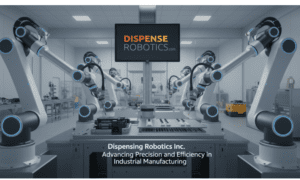Welcome to a thought-provoking journey into the realm of robotics and its impact on our lives. As technological advancements continue to reshape industries, one cannot help but ponder the ethical dilemmas they bring forth. In this blog post, we delve deep into one such dilemma: job displacement and its implications for the future of work.
Introduction: What are Robotics and the Ethical Considerations Surrounding Them?
Robotics technologies are becoming increasingly prevalent in today’s society, with applications in a wide range of fields including manufacturing, healthcare, and transportation. As these technologies continue to evolve and become more sophisticated, they are also raising significant ethical concerns.
One of the most significant ethical concerns surrounding robotics is the potential for mass job displacement. As robots are progressively taking over tasks that human workers traditionally performed, machines pose a risk of displacing a significant number of individuals from their jobs. This situation might result in widespread unemployment and economic hardship, especially for low-skilled workers, who face the highest likelihood of being substituted by robots.
Another ethical concern relating to robotics is the question of what happens when robots become autonomous – that is, when they are able to make their own decisions without human input. As robots become more advanced, there is a possibility that they could become capable of carrying out actions that may be harmful to humans or otherwise unethical. For example, if a military robot were to malfunction and start firing on civilians, this would clearly be an unacceptable outcome.
There are also broader ethical considerations surrounding the use of robotics technologies. For instance, some people believe that it is unethical to create “slave labor” by using robots to carry out tasks that humans should be doing themselves. Others argue that we have a responsibility to use robotic technologies in ways that will benefit humanity as a whole, such as by developing robotic caregivers for the elderly or disabled.
Job Displacement: Impact on Employment Opportunities
The debate over the future of work is increasingly pitting job displacement against robotics and other technological advancements. Some believe that these new technologies will lead to widespread unemployment, as they automate more and more jobs previously performed by human beings. Others believe that these technologies will create new opportunities for employment, as businesses adapt to new ways of doing things.
There is no denying that robotics and other automation technologies have already had an impact on employment opportunities. In many industries, such as manufacturing, these technologies have led to a decline in the number of jobs available. This trend is likely to continue in the future as these technologies become more sophisticated and widespread.
However, it is important to remember that technology has always had an impact on employment opportunities. For example, the industrial revolution led to a decline in agricultural jobs but created new opportunities in manufacturing. The same can be said of the Information Age; while automation has led to a decline in some types of jobs, it has also created new opportunities in others.
The key question is not whether technology will impact employment opportunities but how. It is possible that the net effect of automation will be positive, creating more jobs than it destroys. However, it is also possible that the net effect will be negative, leading to widespread unemployment.
The truth is that no one knows for sure what the future holds. What we do know is that there are ethical considerations at stake. As we grapple with the implications of robotics and other automation technologies, we must ensure that our decisions and actions consider the well-being of workers and society as a whole.
Privacy Concerns: How Robotics can Affect Personal Data Protection
The future of work is increasingly looking like it will include more robotics. As robots advance and perform tasks traditionally done by humans, concerns grow over their impact on personal data protection. Robotics can jeopardize data through mishandling or theft, and access sensitive private information. Increasing autonomy might lead to privacy-invasive decisions. Addressing these concerns as robotics integrates into society demands prioritizing data security and robust protection frameworks.
Autonomous Weapons: Should Robots be Used for War?
As robots increasingly enter the workforce, many people have raised concerns about job displacement. With autonomous weapons, these concerns extend to the ethical implications of using robots for war. Some argue that robots can remove the risk to human soldiers and limit civilian casualties. Others contend that there is a moral imperative not to delegate killing to machines.
There are a number of factors to consider when weighing the pros and cons of using autonomous weapons. One key question is whether or not robots can make ethical decisions on the battlefield. If they cannot, then there is a danger of them causing more harm than good. Another question is what level of autonomy should be given to these weapons? If they are completely autonomous, then there is a risk of them becoming uncontrollable. If their autonomy is restricted, they might struggle to achieve goals.
It is worth considering the impact that autonomous weapons would have on the experience of war for soldiers and civilians alike. War is already an incredibly traumatic event; would delegating killing to machines make it even more so? There are no easy answers to these questions, but they are important ones to consider as we move into an increasingly robotic future.
The Responsibility of Developments in Robotics: Who Should Take Accountability for the Social Impacts of Robotics?
When we consider the social impacts of robotics, who should hold the responsibility? Answering this question is challenging, as numerous stakeholders play a role in developing and deploying robotics technology.
One perspective suggests companies making robots should be accountable for their products’ effects since they profit from their sales. Another view emphasizes government’s role in regulating robotics to prevent societal harm like mass unemployment.
In the end, it’s probable that both sides will have to shoulder some responsibility for the social impacts of robotics. Companies making robots must consider risks, governments need policies for beneficial tech use.
Conclusion
Robotics holds the potential to revolutionize numerous aspects of our lives, from manufacturing to healthcare. However, this technology also brings ethical dilemmas that we must contemplate and address. Job displacement, driven by cost-effective robots, might displace millions globally if not managed properly. This would exert a significant impact on the global economy and society at large. Hence, these ethical dilemmas warrant further exploration to comprehend how robotics technologies will shape the future of work.”



































